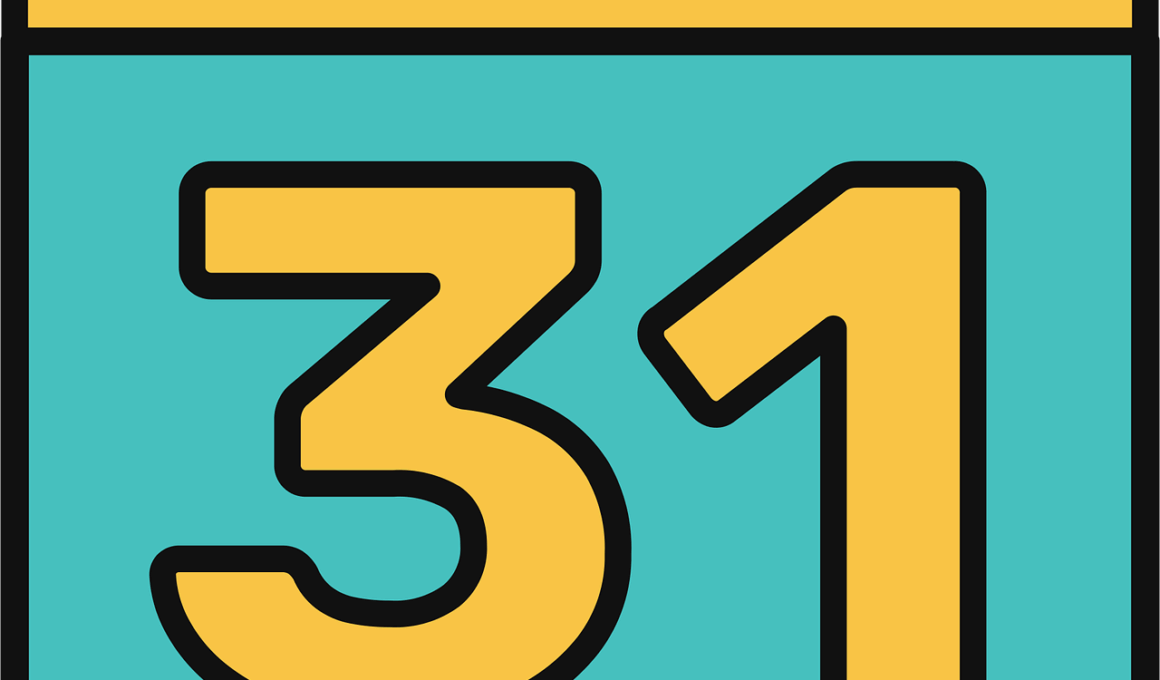Optimizing Customer Follow-ups with Calendar and Scheduling Tools
In today’s fast-paced business environment, effective customer follow-ups are essential for maintaining strong relationships. One way to enhance follow-up efficiency is through advanced calendar and scheduling tools. These digital solutions enable businesses to manage appointments, reminders, and interactions seamlessly. With an organized approach, customer service teams can ensure timely communication, which contributes to customer satisfaction and loyalty. To achieve this, teams can integrate these tools with their existing Customer Relationship Management (CRM) systems. This integration allows for automatic syncing of customer data, ensuring that every touchpoint is meaningful. Moreover, utilizing features such as automated reminders can minimize the chances of missed appointments. Giving both employees and customers timely notifications helps streamline operations. Another advantage is the ability to analyze follow-up patterns over time, giving insights into customer preferences. Consequently, businesses can adjust their strategies to improve engagement. Ultimately, optimizing customer follow-ups through calendar and scheduling tools not only promotes efficiency but also enhances the overall customer experience. Happy customers are likelier to return, making these tools a worthy investment for any company.
Furthermore, to effectively utilize calendar tools, establishing a structured schedule is crucial. Employees should be encouraged to block off specific times dedicated solely to customer follow-ups. This proactive approach ensures that follow-ups are not neglected amid other tasks. By making follow-ups a priority, teams can demonstrate their commitment to customer satisfaction. It is also vital to tailor the frequency of follow-ups according to customer preferences. Some customers may appreciate frequent check-ins, while others prefer more space between interactions. Utilizing calendar tools can help manage these preferences effectively. Moreover, efficiency can be improved by utilizing features such as event scheduling directly through email invitations. This functionality allows customers to choose times that suit their availability, enhancing engagement rates. Effective communication hinges on mutual respect of time and schedule. By empowering customers with choices, businesses can foster a more positive relationship. Another benefit of setting routine follow-up times is the creation of a consistent communication strategy, which builds trust over time. Consistency not only clarifies expectations for both parties but also fosters deeper connections, ultimately benefiting the business.
Leveraging Automation in Scheduling
Automation plays a significant role in optimizing customer follow-ups. By leveraging automated scheduling tools, businesses can streamline their processes while maintaining personalization. For instance, setting up recurring meetings or follow-up tasks based on customer interactions can save valuable time for sales and service teams. Automated tools can send follow-up emails immediately after customer interactions, ensuring that the experience remains fresh in their minds. Furthermore, incorporating Customer Relationship Management data allows these tools to personalize messages based on previous interactions. Personalization can significantly improve engagement, showing customers that their needs and preferences are respected. Additionally, integrating chatbots into follow-up processes can also enhance responsiveness. These bots can handle initial inquiries or schedule appointments, leaving team members to focus on more complex customer needs. Keep in mind that while automation assists in efficiency, a human touch remains irreplaceable in relationship management. Balancing technology with genuine human interaction is crucial for fostering deep connections with customers. This approach ensures that businesses remain competitive while still nurturing their customer relationships effectively.
Moreover, data analytics can significantly influence the effectiveness of scheduling tools. Utilizing analytics enables businesses to assess which follow-up strategies yield the best results. By tracking metrics such as response rates or booking conversions, organizations can refine their approach and optimize their follow-up tactics. Understanding customer behavior is essential for shaping effective communication strategies. Businesses can experiment with different time slots for scheduled calls or follow-ups to identify peak engagement hours. This data-driven approach ensures that customer interactions occur when customers are most receptive. Additionally, A/B testing various outreach methods can provide insights into which messages resonate best in different contexts. These analytics promote informed decisions in scheduling processes and enhance overall efficiencies. With the insights gathered, organizations can align their follow-up processes closer to customer preferences. In doing so, they not only improve their success rates but also enhance customer satisfaction levels. Investing in analytical capabilities within calendar and scheduling tools can offer lasting benefits, helping businesses stay ahead in a competitive marketplace.
Enhancing Team Collaboration
Effective customer follow-ups require robust team collaboration. Calendar and scheduling tools can significantly enhance internal communication among team members. For instance, shared calendars allow employees to see each other’s availability, enabling effortless coordination for follow-up meetings. When multiple team members are involved in the customer follow-up process, having clear visibility of schedules can prevent double-booking and ensure that the right person interacts with the customer at the right time. Furthermore, effective collaboration tools also allow for shared notes and documents, creating a centralized database of information related to the customer. This resource can greatly enhance the quality of interactions by providing team members with context about previous communications. Conducting regular internal alignment meetings can ensure that everyone remains informed about strategies and customer communications, leading to a unified approach. Keeping the team in alignment fosters accountability and improves overall customer experience. Additionally, creating follow-up templates that each team member can utilize can standardize communication while allowing for personalization. The combination of these elements can significantly strengthen team efforts, thus maximizing the potential for successful follow-ups.
As businesses scale, maintaining personalized customer follow-ups can become increasingly challenging. This is where the true value of calendar and scheduling tools is realized. They provide a foundation upon which businesses can grow without sacrificing the quality of customer interactions. The combination of automation, team collaboration, and data-driven insights creates a powerful system for nurturing customer relationships. Investing in these tools ultimately allows companies to stay connected with clients, regardless of the number of customers they serve. With scalable solutions, brands can develop deeper relationships by meeting growing customer expectations. Moreover, this technological enhancement creates a smoother onboarding experience for new team members as they have the right tools at their disposal. Providing employees with access to scheduling tools allows them to engage positively from the beginning, setting the tone for future interactions. Moreover, future expansions can be systematically approached when foundational processes are in place. Companies that prioritize optimizing their follow-up strategies through scheduling tools will likely experience enhanced customer retention and satisfaction over time. The systematic approach will transform casual interactions into meaningful, memorable engagements.
Conclusion: The Future of Customer Follow-ups
In conclusion, the future of customer follow-ups lies within the effective use of calendar and scheduling tools. Businesses that embrace these tools will find they can optimize their communications, thus improving customer satisfaction levels. A well-integrated system that includes scheduling, automated reminders, and analytical insights drives efficiency and strengthens relationships. As technology continues to evolve, the landscape of customer engagement will shift, and adaptability will be key. Companies must stay updated with the latest innovations in this domain to maintain competitiveness. This holds true, particularly in landscape changes driven by customer preferences and technological advancements. Therefore, organizations should invest in training staff on the comfortable usage of these calendar tools. Education ensures that employees can derive the most benefits from them. The integration of advanced tools into customer relations strategies will differentiate successful companies in the crowded marketplace. By focusing on nurturing relationships through timely and personalized follow-ups, companies can create remarkable experiences, thus enhancing loyalty and trust. Ultimately, the willingness to adapt and innovate in follow-up practices will pave the way for sustained success in customer relationship management.
This finishing paragraph summarizes the key aspects covered in the article. Always remember that optimizing customer follow-up strategies is crucial for business success. The tools we discussed provide new ways to engage effectively, foster collaboration, and analyze data-driven insights. A combination of scheduling tools, team collaboration, and automation propels organizations toward improved customer relationships. In the rapidly evolving digital landscape, companies must embrace new methodologies that streamline processes in sales and customer service. Therefore, interpretation of customer behaviors through analytics can be the game-changer that helps businesses optimize their approach. Creating unique follow-up experiences will promote customer satisfaction and loyalty. Companies should proactively seek to improve their methods, understanding that customer needs continue to evolve. Adaptability will define successful businesses in the future. As you leverage new tools, remember that a personal touch is irreplaceable. While technology enhances efficiency, human connections will always remain at the heart of customer relationship management. Balancing technology with genuine engagement will foster deeper connections. By making use of advanced scheduling tools and effective follow-up strategies, you place your business on the path to success.


